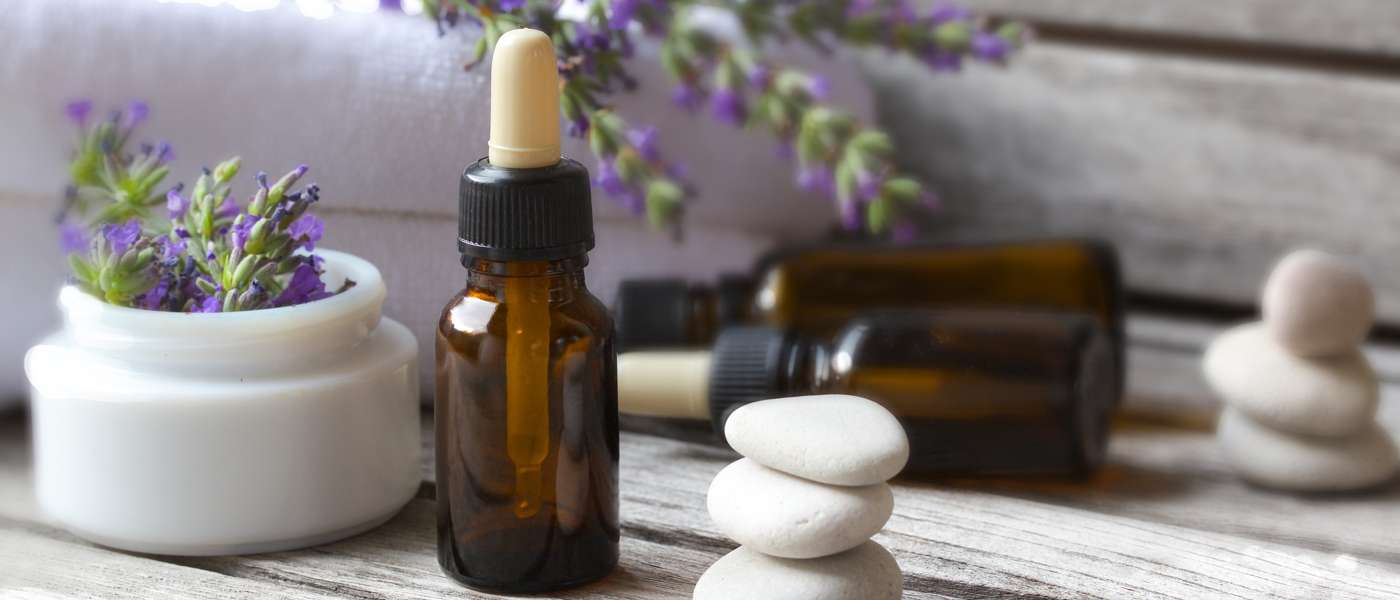As we continue to face uncertain times across our nation, many people are looking for ways to cope with stress and anxiety and reduce their side effects. Long-term stress can have a number of negative effects on the body, both physically and mentally. In fact, according to The Mayo Clinic, long-term stress can lead to anxiety, irritability, anger, headaches, sleeping problems, digestive issues and chest pain. Among the traditional remedies for combating stress, such as exercising, counseling and eating a healthy diet, many individuals are using other holistic approaches like aromatherapy.
A Brief History of Aromatherapy
According to Healthline Magazine, aromatherapy uses natural plant extracts to treat common health issues and promote overall well-being. The practice of aromatherapy uses authentic essential oils in various ways to strengthen the healing process, while also building the immune system.
While aromatherapy is new to some, the practice has a long history dating all the way back to 100 AD. According to the Alliance of International Aromatherapists, many researchers credit the Persians who used distilled essential oils in their healing practices in the 10th century. The history of aromatherapy is also found in the Egyptian culture where resins, balms and fragrant oils were used by priests for religious ceremonies, offerings and embalming. In this same time period, aromatic oils were being used in ayurvedic practices in China and India.
By the 19th century, just as German and French physicians were recognizing the potential of using essential oils in treating diseases, many medical doctors were establishing themselves on the use of chemical drugs as an effective treatment for their patients.
However, as modern medicine continues to evolve today, many are going back to aromatherapy to reap its many benefits. Aromatherapy is known for both its psychological and physical benefits. Depending on the essential oil, aromatherapy can help improve mood, promote relaxation and reduce stress. In addition, this practice can stimulate the immune system, ease muscle tension and boost circulation.
When to Use Aromatherapy
Aromatherapy is commonly used to treat a wide variety of mental and physical problems from stress and anxiety, to headaches and digestive issues. The essential oils used in this practice trigger messages to be sent to your brain’s limbic system, which controls your emotions, memory and how we learn. When we use aromatherapy, we stimulate the limbic system and are able to communicate our needs with our brain.
Molly Fisher, Director of Program Innovation and Education, at Inspῑr, said “we are excited to incorporate aroma therapy into our programming through nature, using our numerous gardens to not only provide tactile but olfactory stimulation but also using flowers and other natural elements within our garden club programming, as well as crafting and culinary experiences.” While aromatherapy is used to treat a variety of conditions, here are some of the most common:
Stress– When we experience stress, our bodies can experience it too. Long-term stress can cause a wide variety of health problems if it goes unaddressed. Lavender, in its oil form, is clinically proven to reduce stress when used properly. This essential oil is perfect to use in times of stress and uncertainty, because it calms the nervous system, lowers blood pressure and helps the body feel relaxed.
Anxiety– It’s not uncommon for people to experience anxiety in times of uncertainty. According to the Anxiety and Depression Association of America, there are nearly 40 million American adults who suffer from anxiety. Studies have found that those who use aromatherapy to address their anxiety symptoms have experienced less pain and depression when compared to those who have not.
Insomnia– Quality sleep is essential to brain function and memory, and also lowers our risk of chronic diseases. Studies such as this one published by The Journal of Alternative and Complementary Medicine, found that participants who were given essential oils were able to fall asleep quicker and stay asleep longer than those who were given a placebo.
Dementia– Those who have been diagnosed with dementia or Alzheimer’s might experience occasional to frequent bouts of irritability and frustration. Many dementia patients have found that using aromatherapy helps relieve some of these symptoms. These 7 Essential Oils have shown positive results for helping control the different symptoms. Susanne Bengstsson, Oceana Director at Inspῑr, works with essential oils and aromatherapy on a daily basis. “The benefit of aromatherapy for our residents in Oceana does make a difference in minimizing anxiety and or depression. Scents such as bergamot, lemon balm, and lavender are particularly effective.”
Chronic Pain– When coupled with a massage, aromatherapy can provide relief to those who experience chronic pain, especially when the pain is mostly muscle-related.
How to Use Aromatherapy at Home
If you’re unable to visit a certified aromatherapist, that doesn’t have to stop you from reaping the benefits of its practice in the comfort of your own home. Here are a few ways you can adopt aromatherapy into your daily routine. As always, if you are new to using essential oils, make sure to contact your healthcare provider before doing so.
- Add to Your Bath Water– Many people find comfort in soaking in a warm bath, especially when experiencing stressful situations. When essential oils are added to bath water, it can enhance the experience and help you relax and unwind.
- Use with Steam– Essential oils can help relieve congestion and sinus blockage when they are coupled with steam. Add a few drops of essential oils into hot water and inhale the relaxing scent.
- Spray on Fabrics– Lavender is commonly used to help relieve stress and also promotes quality sleep. You might consider diluting a few drops of this essential oil with water in a bottle and spray it onto your pillow cases or bath towels.
Essential Oils and Their Purposes
There are hundreds of essential oils, however some can be toxic, so it’s important to do your research before using them. According to Medical News Today, here are the most commonly used essential oils and what they are used to treat:
- Eucalyptus is often combined with peppermint to help alleviate cold and flu symptoms. However, many people are allergic to eucalyptus, so consult your healthcare provider before using.
- Lavender can be used to relieve many different ailments including stress, poor sleep, headaches and migraines.
- Black Pepper, used in its essential oil form, is commonly used to help promote circulation, reduce pain and bruises and improve flexibility.
- Lemon should be used when experiencing depressive symptoms since it is known to improve mood, while helping reduce any stress-related symptoms.
- Thyme can also help reduce stress-related symptoms along with fatigue and nervousness.
- Rosemary can help boost memory, while supporting circulation and the nervous system.
Tips for Using
If you’re using aromatherapy for the first time, it’s important to consult your healthcare provider with any questions or concerns. While aromatherapy is quite simple in practice, there are a few things first-time users should be aware of:
- Always remember to use certified 100% essential oils and avoid synthetics.
- When applying directly onto your body, always dilute the oil or use a carrier, such as lotion.
- You might consider testing a small patch of skin when using an oil for the first time to check for any sensitivity.
Staying Stress-Free at Inspῑr
We know that these are hard times for everyone. As we prepare to open our doors in the upcoming months our associates at Inspῑr have been working hard to find constructive ways to cope with stress. We offer many virtual events to engage with the community and help everyone find solace during these trying times. Our team is also on hand to book a virtual tour of our residence, please contact us here!
Essential oils have been getting a lot of buzz recently for helping witheverything from headaches to sleep to sore throats. But do theseconcentrated plant-based oils work?
Essential oils can make a positive impact on your health and well-being as long as you use them in a safe way.
Want to give essential oils a try? Learn what conditions they may helptreat and how to find quality essential oils, since not all products arecreated equal.
What Are Essential Oils?
Essential oils are basically plant extracts. They’re made by steaming orpressing various parts of a plant (flowers, bark, leaves or fruit) tocapture the compounds that produce fragrance. It can take several pounds ofa plant to produce a single bottle of essential oil. In addition tocreating scent, essential oils perform other functions in plants, too.
What Is Aromatherapy?
Aromatherapy is the practice of using essential oils for therapeuticbenefit. Aromatherapy has been used for centuries. Wheninhaled, the scent molecules in essential oils travel from the olfactorynerves directly to the brain and especially impact the amygdala, theemotional center of the brain.
Essential oils can also be absorbed by the skin. A massage therapist mightadd a drop or two of wintergreen to oil to help relax tight muscles duringa rubdown. A skincare company may add lavender to bath salts to create asoothing soak.
What Are Essential Oils Good For?
Although people claim essential oils are natural remedies for a number ofailments, there’s not enough research to determine their effectiveness inhuman health. Results of lab studies are promising — one at Johns Hopkinsfound that certainessential oils could kill a type of Lyme bacteriabetter than antibiotics — but results in human clinical trials are mixed.
Some studies indicate that there’s a benefit to using essential oils whileothers show no improvement in symptoms. Clinical trials have looked atwhether essential oils can alleviate conditions such as:
- Anxiety
- Depression
- Nausea
- Insomnia
- Low appetite
- Dry mouth
How Can You Use Essential Oils Safely?
The quality of essential oils on the market varies greatly, from pureessential oils to those diluted with less expensive ingredients. Andbecause there’s no regulation, the label may not even list everythingthat’s in the bottle you’re buying. That’s why essential oilsshould not be ingested.
Johns Hopkins also advises against using essential oil diffusers, small householdappliances that create scented vapor. Diffusion in a public area orhousehold with multiple members can affect people differently. For example, peppermint is often recommended forheadaches. But if you use it around a child who’s less than 30 months old, the childcan become agitated. It could have a negative effect. Additionally,someone with fast heartbeat can react adversely to peppermint.
The safest ways to use essential oils include:
- Aromatherapy accessories: Necklaces, bracelets and keychains made with absorbent materials you apply essential oils to and sniff throughout the day.
- Body oil: A mixture of essential oils with a carrier oil such as olive, jojoba or coconut oil that can be massaged into skin. Because essential oils are concentrated, they can cause irritation. Avoid using them full-strength on skin.
- Aroma stick: Also called an essential oil inhaler, these portable plastic sticks have an absorbent wick that soaks up essential oil. They come with a cover to keep the scent under wraps until you’re ready.
Allergic reactions to essential oils
A small number of people may experience irritation or allergic reactions tocertain essential oils. You’re more likely to have a bad reaction if youhave atopic dermatitis or a history of reactions to topical products.Although you can experience a reaction to any essential oil, some are morelikely to be problematic, including:
- Oregano oil
- Cinnamon bark oil
- Jasmine oil
- Lemongrass oil
- Ylang-ylang oil
- Chamomile oil
- Bergamot oil
Because pure essential oils are potent, diluting them in a carrier oil isthe best way to avoid a bad reaction when applying directly to the skin. Ifyou get a red, itchy rash or hives after applying essential oils, see adoctor. You may be having an allergic reaction.
Which Essential Oils Are Best?
There are dozens of essential oils, all with different fragrances andchemical makeups. Which essential oils are best depends on what symptomsyou’re looking to ease or fragrances you prefer. Some of the most popularessential oils include:
- Lavender oil: Many people find the lavender scent relaxing. It’s often used to help relieve stress and anxiety and promote good sleep.
- Tea tree oil: Also called melaleuca, this essential oil was used by Australia’s aboriginal people for wound healing. Today, it’s commonly used for acne, athlete’s foot and insect bites.
- Peppermint oil: There’s some evidence peppermint essential oil helps relieve irritable bowel syndrome (IBS) symptoms when taken in an enteric-coated capsule (from a trusted health supplement provider). It may also relieve tension headaches when applied topically.
- Lemon oil: Many people find the citrusy scent of lemon oil a mood booster. It’s also often used in homemade cleaning products.
How to find quality essential oils
The most important thing to consider when shopping for essential oils isproduct quality. But figuring out which oils are the best ischallenging, since there’s no government agency in the U.S. that provides agrading system or certification for essential oils. A big problem? Manycompanies claim their essential oils are “therapeutic grade,” but that’sjust a marketing term.
Unfortunately, there are lots of products you might find online or instores that aren’t harvested correctly or may have something in them thatisn’t listed on the label.
Here are some tips to help you shop for pure essential oils:
- Look at the label: It should include the Latin name of the plant, information on purity or other ingredients added to it, and the country in which the plant was grown.
- Evaluate the company: Purchase products from a well-known and reputable aromatherapy company that’s been around for several years.
- Choose dark-colored, glass containers: Pure essential oils are highly concentrated. They can dissolve plastic bottles over time, tainting the oil. Most companies package essential oils in small brown or blue glass bottles to protect the quality.
- Avoid “fragrance oils”: Fragrance or perfume oils are made from essential oils combined with chemicals or entirely from chemicals. They’re not suitable for aromatherapy — instead, look for bottles that contain a single essential oil in its purest form (100% essential oil with no other fillers).
- Compare prices: Essential oils range in price, depending on how involved harvesting and production are. Within a line, there should be a wide variety of prices — rose absolute or sandalwood oils will be more expensive, while sweet orange oil will be on the less expensive end. If you find a rock-bottom price for an expensive essential oil, it probably isn’t pure.
Essential oils can lift your mood and make you feel good with just a whiffof their fragrance. For some people they may even help alleviate thesymptoms of various conditions. For more information on how to incorporatethem into a healthy lifestyle, consult an integrative medicine expert.



